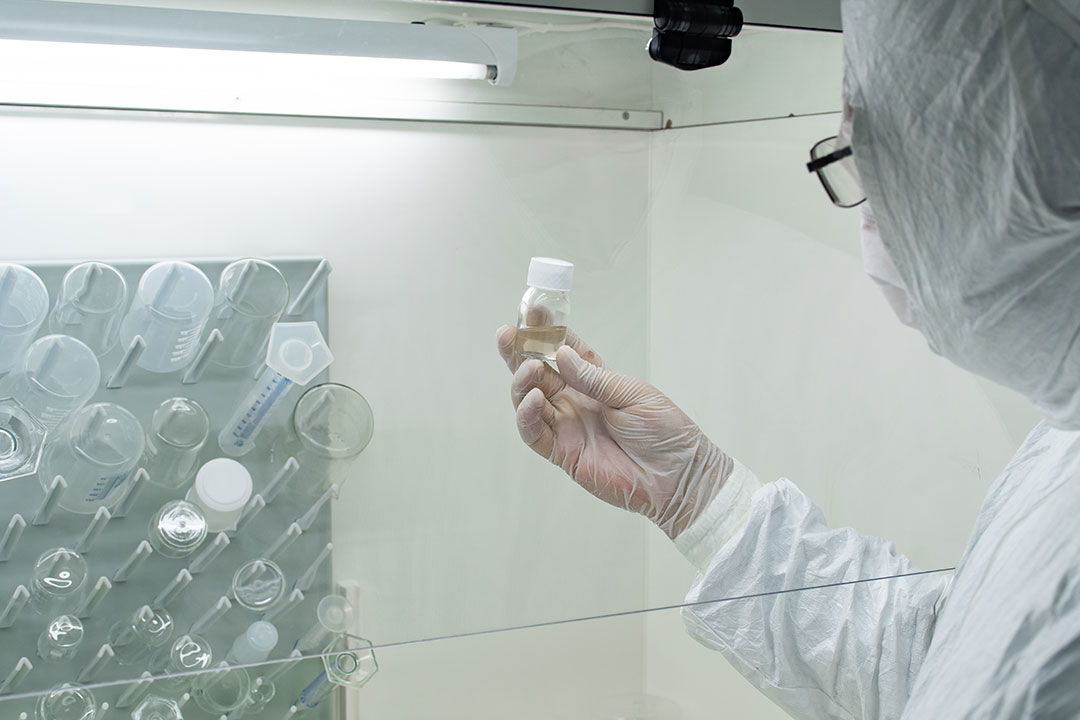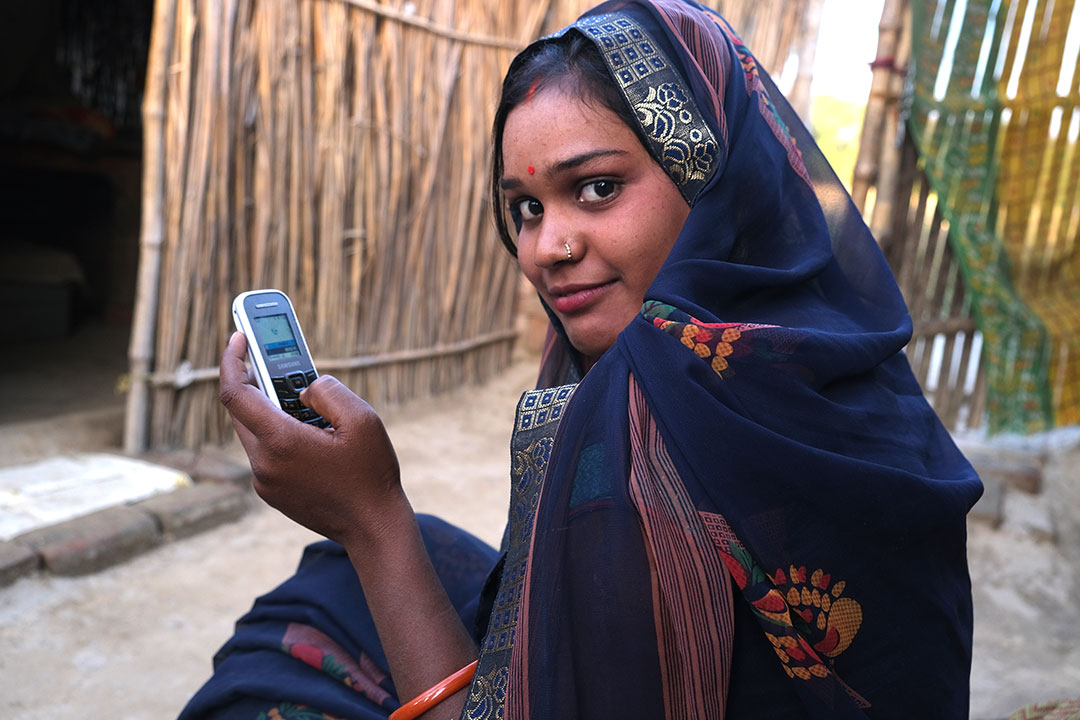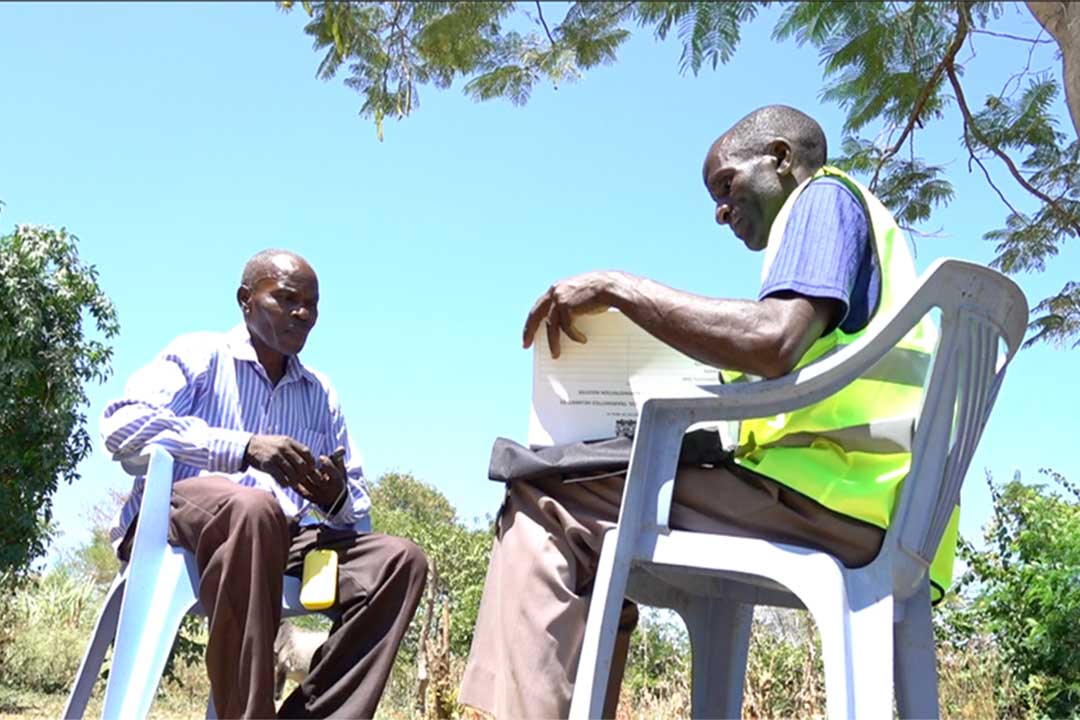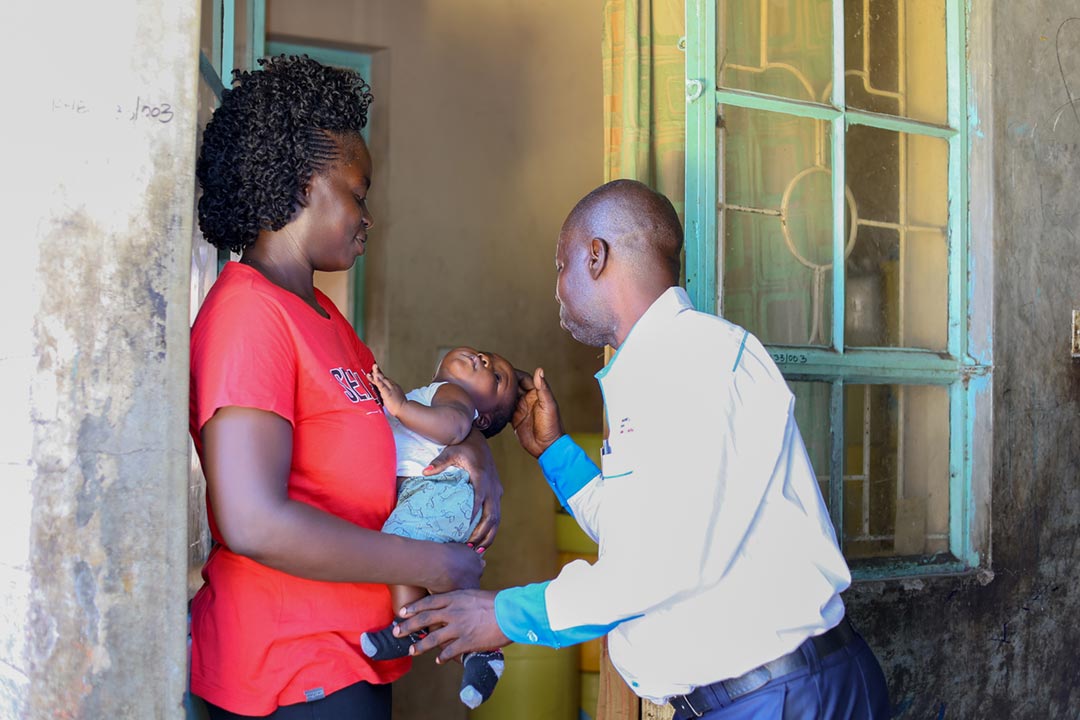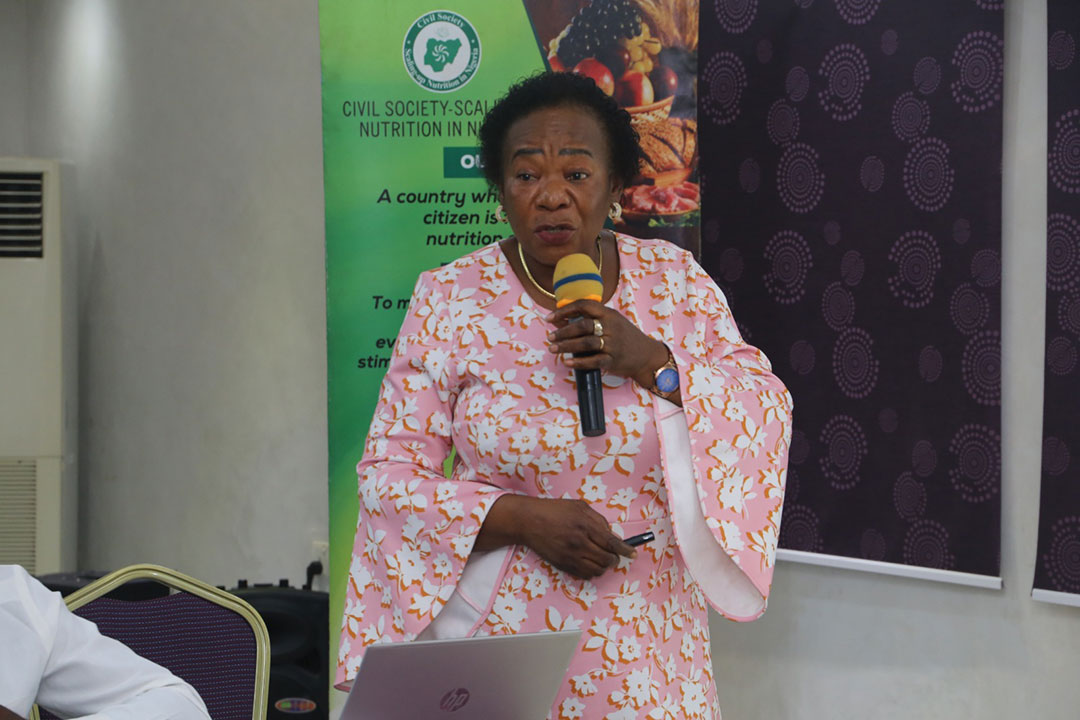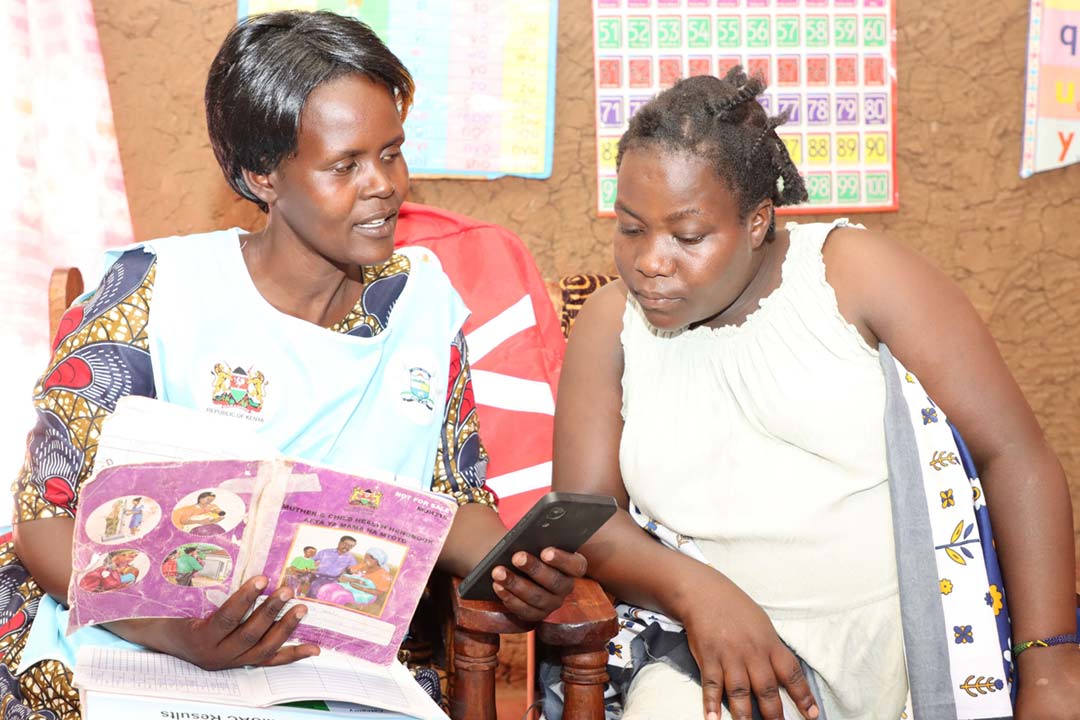How “reformed” traditional birth attendants are helping mums choose a safer path
More women in Kenya are opting to give birth in health facilities – a safer option. Sometimes, the traditional birth attendants they are leaving behind are the people encouraging them to do so.
- 6 February 2024
- 7 min read
- by Angeline Anyango

For more than two decades, Pamela Atieno's round, grass-thatched, dimly-lit mud-house was known to mothers around her village of Seme, in Kenya's Kisumu county, as a substitute maternity ward.
Heavily pregnant women would walk in, arms akimbo, clutching at the wooden door frame. In almost every case, they walked out again carrying a tiny newborn.
Between 2020 and 2022, 88% of Kenyan women who gave birth did so in a health facility – up from 61% in the period 2009–2014.
But in 2012, a mother she was assisting began to haemorrhage. There was little that Atieno, a traditional birth attendant (TBA), not a qualified midwife, could do to help. The woman died. After 21 years, Atieno closed the door on her informal practice.
Safer births, safer babies
More women in Kenya are choosing to have their babies under the eye of qualified medical workers. Between 2020 and 2022, 88% of Kenyan women who gave birth did so in a health facility – up from 61% in the period 2009–2014.
That trend has been mirrored in Kisumu, a county bordering Lake Victoria in the country's west, where facility delivery at sub-county level rose from 64–69% in 2019, to 92–96% in 2023, according to administrative reports.
As a consequence, fewer women and babies are dying. During the latest State of County address, Kisumu Governor Peter Anyang' Nyong'o revealed that in just the past two years, maternal mortality has dropped 30% – from 495 to 393 per 100,000 live births – and child mortality has also reduced from 54 to 39 per 100,000 live births.
Researchers have found that health facility birth enables childhood vaccination – meaning a safer start can mean growing up safer, too. In Kisumu, under-five mortality – a statistic that also reflects, among other factors, the impact of wider vaccination uptake – is currently at 63 per 1,000 live births, down from 79.
“I am now a reformed TBA. I still support women in their pregnancy journey, but no longer deliver them. Instead, I refer them to the nearby health facility for a safe birth.”
- Pamela Atieno
By encouraging pregnant women to seek formal health care, ex-TBAs like Atieno have offered vital support for that change.
Becoming a traditional birth attendant
Even before the 2012 tragedy, Atieno had contemplated leaving her trade behind. But she would find herself at a crossroads whenever a heavily pregnant woman knocked at her door.
But after the incident, fear of facing the wrath of authorities and angry villagers in case of death drove her definitively away from her practice.
"I am now a reformed TBA," Atieno said. "I still support women in their pregnancy journey, but no longer deliver them. Instead, I refer them to the nearby health facility for a safe birth."
When VaccinesWork arrived to visit Atieno at her Seme Village home, she was bidding farewell to one of her former clients, a woman called Linet Auma. As she ushered me to a seat, she began to narrate how she became a TBA.
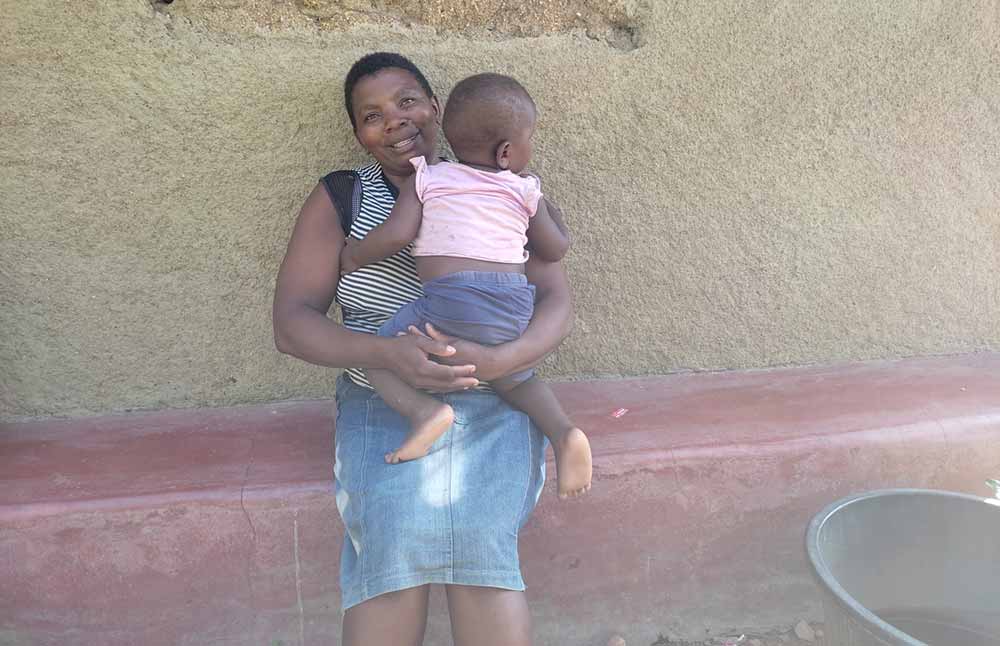
Credit: Angeline Anyango.
"My mother-in-law worked at a health facility. I don't know exactly which department she worked in, but decided to be a TBA after being relieved from her duties," said Atieno. Atieno, then a newlywed, would spend most of her time with her mother-in-law, observing the delivery process.
She watched her mother-in-law massage the pregnant women, watched her inform her clients if the baby was in the wrong position, or not moving enough, counselling them on how they should avoid a stillbirth.
Female visitors would come in at least two times in a week in need of a massage, which helped to ease lower abdomen and back pains.
During child delivery, the attendant would use her bare hands – sterile gloves were not common in the rural villages. After cutting the umbilical cord using a razor blade, the birth attendant would gently rub the women's abdomen until the placenta came out.
Have you read?
Then, the new mother would then be given water to wash with while the baby was cleaned and wrapped in a clean shawl.
"The women would spend at most a day relaxing in the 'maternity ward' before being released to take the newborns home," says Atieno, adding that most of their clients were locals of the village.
Stepping up
After weeks of training – a combination of observation and occasional practice – Atieno was deemed ready to start rendering her own TBA services to the women, with the blessings of her mother-in-law.
"One day, while my mother-in-law was away, a pregnant woman visited, and I was able to successfully deliver her. When she came back, she was impressed and announced her retirement, and I took over the job," says Atieno.
She reveals that they would attend to the delivering women for free. Some of the new mothers would pay them a visit a couple of months or years later with gifts to express gratitude.
Choosing between home and hospital
One of the women she helped through pregnancy, Linet Auma, told VaccinesWork that she gave birth to four out of her six children at home in the village.
The distance to the health facility, and fear of being attended to by a male medic during the delivery process, weighed heavily on her choice.
"I had also previously heard women tell stories of being mishandled by harsh nurses. I was not ready for such," she says.
Heeding to the government’'s call to end unskilled delivery was not easy. Pregnant women continued to knock on TBA Opiyo’s door for help.
After delivery, she would spend the first week at home, resting. It was only after that that she would make her way to a health facility to seek postnatal care, Auma says. That meant that all four children missed their first vaccines – those typically administered at birth.
But her two youngest children were born the health facility, thanks to the advice she got from Atieno.
"During my nine-month pregnancy journey, I would visit [Atieno] at least once a week for massage. Sometimes my baby was lying on the wrong side of my uterus and this would even make movement almost impossible," says Auma.
A day before her due date, Atieno administered her regular massage, and advised her to visit the health facility, since her baby was on the way.
Atieno was right. Auma delivered six hours after checking into the health facility, a decision the mother of six says she has never regretted.
"The doctors were very friendly. After delivery, they kept monitoring me for hours in case of any complications. They also checked my baby's weight and administered to him the first vaccine," she says.
If she had met Atieno earlier, Auma says, all her children would have been born in a hospital.
Pushing for change
Like Atieno, 70-year-old Mathilda Auma Opiyo used to deliver babies as a TBA, but now focuses on caring for women with pain-relieving massages during the course of their pregnancy.
She learned the trade from her mother, beginning her work as a TBA in a period when HIV/AIDS transmission was high in Kisumu County. According to a 2019 WHO report, without intervention, the likelihood of mother-to-child HIV transmission during pregnancy, labour, delivery or breastfeeding runs between 15% and 45%.
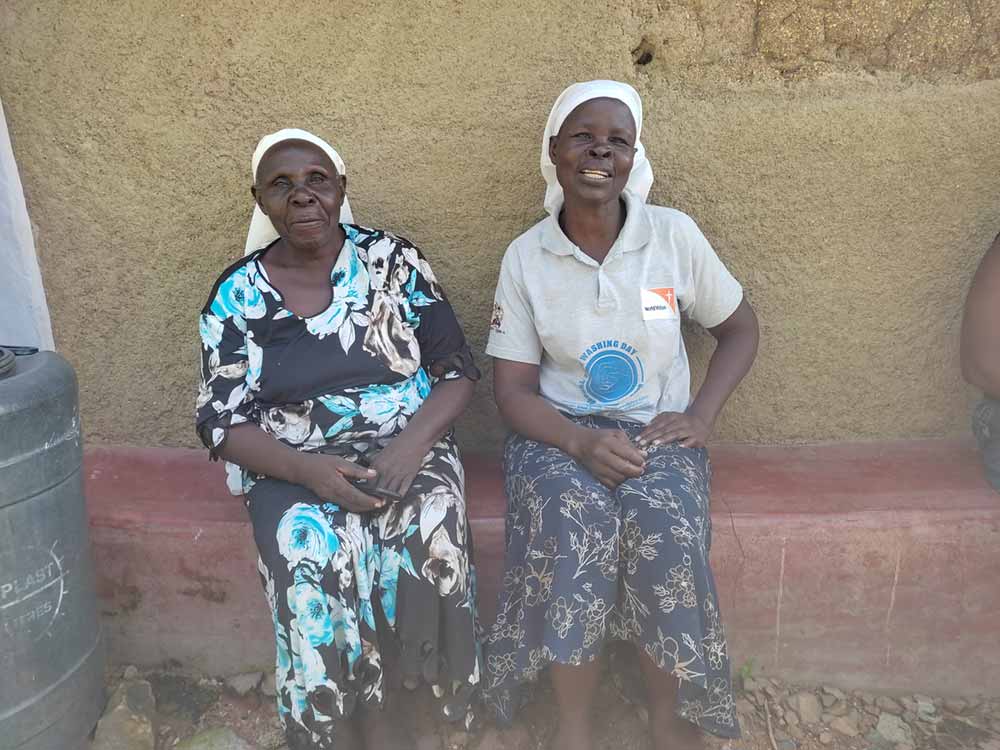
Credit: Angeline Anyango.
And it wasn't only the infant at risk. Birth attendants like Opiyo worked without gloves, in a context where women rarely checked their HIV status.
Those were also days of frequent measles outbreaks in her village – a function of low immunisation rates, Opiyo says. Few women who delivered at home attended antenatal and postnatal care services.
"Polio was yet another common condition," Opiyo says.
Even so, heeding the government's call to end unskilled delivery was not easy. Women continued to knock on her door for help.
Her stance, she recalls, remained the same. She would patiently explain why it was important to obey the government's directive.
Change took time. Eventually, women began embracing delivery under the care of a skilled birth attendant.
The upshot, according to both Opiyo's observations and the Kisumu county government's statistics, is nothing short of vital. Fewer women are dying in childbirth, or from complications related to childbirth that might arise later. Fewer babies are lost, and more children enter life protected with vaccines.
More from Angeline Anyango
Recommended for you
